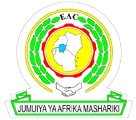Non-Tariff Measure
- NTM classification
- C3: Requirement to pass through specified port of customs
- Date when the measure came into force
- 01 July 1955
- Publication where the measure is specified
- Customs and Excise Act
- Regulation where the measure is specified
- Customs and excise Act as amended by G.N No 407 of 1963 and Act No. 4 of 1999
- Country/Region applying the measure
- Zambia
- Coded list of objectives
- X: For purposes n.e.s.
- Description of the measure
- 15 (1) Subject to subsections (2) and (3) and section twenty-one A, all ships, aircraft and vehicles including trains and all persons whether or not engaged in importing or exporting goods shall enter or leave Zambia through ports or aerodromes appointed under section thirteen, and shall follow such routes as may have been appointed or defined under that section, and shall comply with all rules and regulations made under this Act or any other written law in force for the protection of the revenue and trade of Zambia or for any other purpose.
(2)The Commissioner-General may, at his discretion, permit, subject to such conditions as he may specify, ships, aircraft and vehicles and persons whether or not engaged in importing or exporting goods to enter or leave Zambia through places or aerodromes or by routes other than those appointed or defined in terms of section thirteen.
(3) Any pipeline through which goods may be imported or exported shall, for its length in Zambia, be laid along such route as may be defined in respect thereof under section thirteen, and shall be constructed and operated in accordance with such regulations as may be prescribed.
17(1) The Commissioner-General may, subject to such terms and conditions as the Commissioner-General may determine license
(a) any area, place or building in or at a customs port of entry or customs aerodrome as a customs area in which imported goods or goods for export may be held and stored before entry for consumption, warehousing, export or such other purpose as permitted or required by this Act; or
(b)customs areas at inland places for the receipt and storage of uncustomed goods carried by licensed customs carriers, including trains, before entry in accordance with this Act;Provided that an owner or operator of such a customs area, place or building is a duly licensed clearing agent in terms of section one hundred and eighty-two A.
(2)A license issued under this section shall expire on 31st December in each year and may be renewed by the Commissioner-General on receipt of an application for renewal, in the prescribed form and on payment of the
prescribed fee.
(3)The owner or operator of a customs area shall provide and maintain without charge such accommodation and facilities as the Commissioner-General may determine are reasonably necessary and suitable for the purposes of carrying out the functions and responsibilities of the Customs Services Division at that place.
(4)No person or vehicle shall enter or leave a customs area and no goods whether dutiable or not shall be brought into or taken out of any customs area, otherwise than through an entrance or exit approved for that purpose by
the Commissioner-General.
(5)No vehicle or goods shall be taken out of any customs area without the permission of the Commissioner General.
(6) Any person or vehicle entering or leaving any customs area and all goods which are being brought into or out of such area may be detained by an officer for the purposes of search or examination.
(7) The operation of any customs area shall be subject to such regulations and rules as may be made pursuant to the provisions of this act
20 (1) The driver or a person in charge of a train shall, upon its arrival in Zambia, cause the train to proceed and stop within a customs area and shall deliver to the Customs Services Division an inward report in the prescribed form with other documents required by the terms and conditions of the customs carriers licence issued to the owner or operator of the train, and where an inward report can be delivered electronically before the arrival of the train in Zambia, the driver or person in charge of a train shall deliver the inward report electronically.
(2)The driver or other person in charge of the train shall answer any questions asked by any officer in regard to the train, its journey and all persons, or goods carried on it.
(3) No goods shall be unloaded from or loaded on to any train or any part of a train separated from any other part other than with the permission of the Customs Services Division.
(4)Any goods permitted by the Customs Services Division to be unloaded are to be unloaded within the customs area.
(5) No train shall leave the customs area to continue its journey within Zambia or for any other purpose other than with the written permission of the Customs Services Division.
(6) On having received permission from the Customs Services Division to leave the customs area, the driver or person otherwise in charge of the train shall comply with any terms or conditions of that permission and of the customs carriers licence issued to the owner or operator of the train.
(As amended by Act No. 4 of 1999 and Act No 16 of 2013
21 (1) The person in charge of any vehicle, other than a railway train, arriving in Zambia, shall
(a) in the case of arrival by ship or aircraft, unless otherwise directed by an officer, proceed immediately with the vehicle from the examination station, or other approved point of unloading, to a customs area at that port or aerodrome; or
(b)in the case of arrival by road, unless otherwise directed by an officer, proceed immediately to a customs area at that port and before unloading or in any manner disposing of such vehicle or any goods thereon or contained therein, shall deliver to the custom house at that port,a report in the prescribed form together with such other documents as may be required by the terms and conditions of any customs carriers licence issued to the owner or operator of the vehicle.
(2) A person in charge of a vehicle may file the report referred to in subsection (1) electronically before the arrival of the vehicle in Zambia
(3)The driver or other person in charge of the vehicle shall answer any questions asked by any officer in regard to the vehicle, its journey and all persons or goods carried in or on it
22 (1) The pilot in charge of any aircraft arriving in Zambia shall, immediately after the landing at a customs aerodrome or other place Duty of persons arriving in Zambia to report to custom house Person in charge of
vehicle to report goods Report of arrival of aircraft permitted under the provisions of section fifteen, cause the aircraft to proceed to the examination station at that place.
(2) The pilot in charge of the aircraft shall
(a) within one hour after landing the aircraft, deliver to the Customs Services Division an inward report in the prescribed form with any documents required by or under this Act, and where an inward report may be filed elec
tronically before the arrival of the aircraft in Zambia, the pilot or person in charge of the aircraft shall file the
inward report electronically.
(b) answer any questions asked by any officer in regard to the aircraft, its cargo, crew, passengers and journey.
(3)Except with the permission of the Customs Services Division, no person shall enter or leave any aircraft that has arrived in Zambia or unload any cargo therefrom until a report has been made in terms of this section and
any other customs requirements in regard to inspection or examination of the aircraft and its passengers and or cargo have been completed.
(4)Except with the permission of the Customs Services Division and in accordance with a customs clearance, no aircraft shall leave the customs examination station.
(Act No. 4 of 1999as amended by Act No 16 of 2013)
23 (1) The master of any ship arriving in Zambia at a customs port or other place permitted in accordance with the provisions of section fifteen shall cause that ship to proceed immediately to an examination station.
(2)The master of any ship arriving in Zambia shall
(a)within twenty four hours of such arrival, deliver to the Customs Services Division an inward report in the prescribed form with any documents required by or under this Act, and where the inward report may be filed electronically before the arrival of the ship in Zambia, the master of a ship shall file the inward report electronically
(b) answer any questions asked by any officer in regard to the ship, its cargo, crew, passengers and journey.
(3)Except with the permission of the Customs Services Division, no person shall enter or leave any ship that has arrived in Zambia or unload any cargo therefrom until a report has been made in terms of this section and any
other customs requirements in regard to inspection or examination of the ship and its passengers or cargo have been completed.
(4)Except with the permission of the Customs Services Division and in accordance with the customs clearance, no ship shall leave the examination station.(Act No. 4 of 1999, Act No 16 of 2013
34 (1) Section fifteen shall not apply to a ship or aircraft that is required or compelled to berth, land, anchor or otherwise arrive at a place other than a customs port or customs aerodrome if such arrival
(a)is required by any statutory or other requirement relating to navigation; or
(b)is compelled by accident, stress or weather or other necessity.
(2)The master, pilot or person in charge of any ship or aircraft to which this section applies
(a)shall report forthwith to a customs officer;
(b)shall not, without the consent of a customs officer, permit any goods carried in the ship or aircraft to be unloaded from it or any of the crew or passengers to depart from its vicinity; and
(c)shall comply with any directions given by a customs officer in respect of any goods, crew or passengers carried in the ship or aircraft.(Act No. 4 of 1999)
(1) Subject to subsection (2), the person making entry of any Imported goods shall
(a) Deliver to the Customs Services Division such copies as may be Required of a duly completed bill of entry;
(b) Produce all such documents as may be required by the Customs Services Division;
(c) Answer any questions relating to those documents or those goods; And
(d) Unless the goods are entered to be warehoused or removed in bond,pay all duties due on the goods at the lodgment of the entry: Provided that where electronic registration on the Customs Computer System exists, the payment shall be made from the date of registration or within five days of the issue of an assessment notice.
(2)Where
(a) Visitors motor vehicles are imported temporarily;
(b) Goods not being goods for commercial use are imported in the baggage of passengers and accompanying them on the same ship, aircraft, train or vehicle other than a train;
(c) goods are unaccompanied passengers baggage not being goods for Commercial use; or
(d) Goods valued at not more than the kwacha equivalent of two thousand United States dollars are imported; the presentation of a bill of entry may be dispensed with and entry may be effected in such other manner as may be provided for under this Act.
(3) An importer shall, at his own risk and expense, unload and reload, remove to or from any place indicated by an officer, open, unpack repack, and close up such of the packages as an officer may require for examination, and all charges incurred in the examination of goods shall be borne by the importer.
(4) Any person who represents, either personally or through an agent, to any officer that he is the importer of any goods shall, in respect of those goods, be liable for the fulfilment of all obligations imposed on importers by this Actor any law relating to customs and excise, to prosecution for Infringements thereof and to penalties and forfeitures incurred there under.
(5)Goods that remain within customs premises beyond forty-eight hours from the time of their release from customs control shall be liable to such storage fees as the Commissioner–General may prescribe
37(1) Entry in terms of section thirty-four shall not be valid unless
(a) Particulars of the goods and packages in that entry correspond with the particulars of the goods and packages as reported in terms of section twenty, twenty-one, twenty-two, twenty-three, or twenty-five, and in the certificate or other document, where any is required, by which the importation of those goods is authorized
(b) The goods have been properly described in the entry by the denomination and with the characters, circumstances, and origin according to which they may be imported or are charged with duty;
(c) the value of the goods in terms of section eighty-five has been declared; and
(d)all documents required by the Customs Services Division have been produced and all questions asked by the Customs Services Division in relation to such documents or the imported goods, have been answered; and
(e) The registration number is assigned electronically by the Customs Computer System, on the entry duly signed by a declarant or importer, where such facilities exist.
(2) Goods taken or delivered by virtue of an entry which is not valid, out Of any ship, aircraft, vehicle, pipeline, customs area, or bonded warehouse, or other place where they have been deposited in terms of this Act shall be deemed to be goods landed or taken without entry, and any person taking or delivering such goods shall be guilty of an offence.
(3) If any goods in respect of which a valid entry has been made
(a) are delivered to any person from any customs area or other place where they have been deposited in terms of this Act pending clearance through customs, or from any ship, aircraft, vehicle, or pipeline; or
(b) Are tampered with in any way whatsoever; before authority for delivery has been granted in such manner as may be prescribed, the person delivering or tampering with them shall be guilty of an offence.
(As amended by G.N. No. 407 of 1963, Acts No. 48 of 1968, No. 4 of 1999, No. 1 of - Reference of the measure
- Part III para, 15 (1-3), 17, (4-6) 20 (1-6),21. 22 2(b). 23,2(b), 24,34 (2) 37 ,( 2) and (3)
- Measure also domestic
- No
Products affected by the measure.
| Code | Product | Partial coverage | Partial coverage indication | Date in | Date out |
|---|
| PG: 1 | All products | No | | 01 July 1955 | |
- Description
- All imports
Countries/Regions affected by the measure.
| Inclusion/Exclusion | Country | Date in | Date out |
|---|
| Inclusion | Entire world | 01 July 1955 | |
- Description
- All importing countries
{"transfer_retrieve_error":"Transferred complaint details could not be retrieved.","translate_error":"Text could not be translated"}
https://tradebarriers.org/img/flag_icons



 English
English Français
Français
